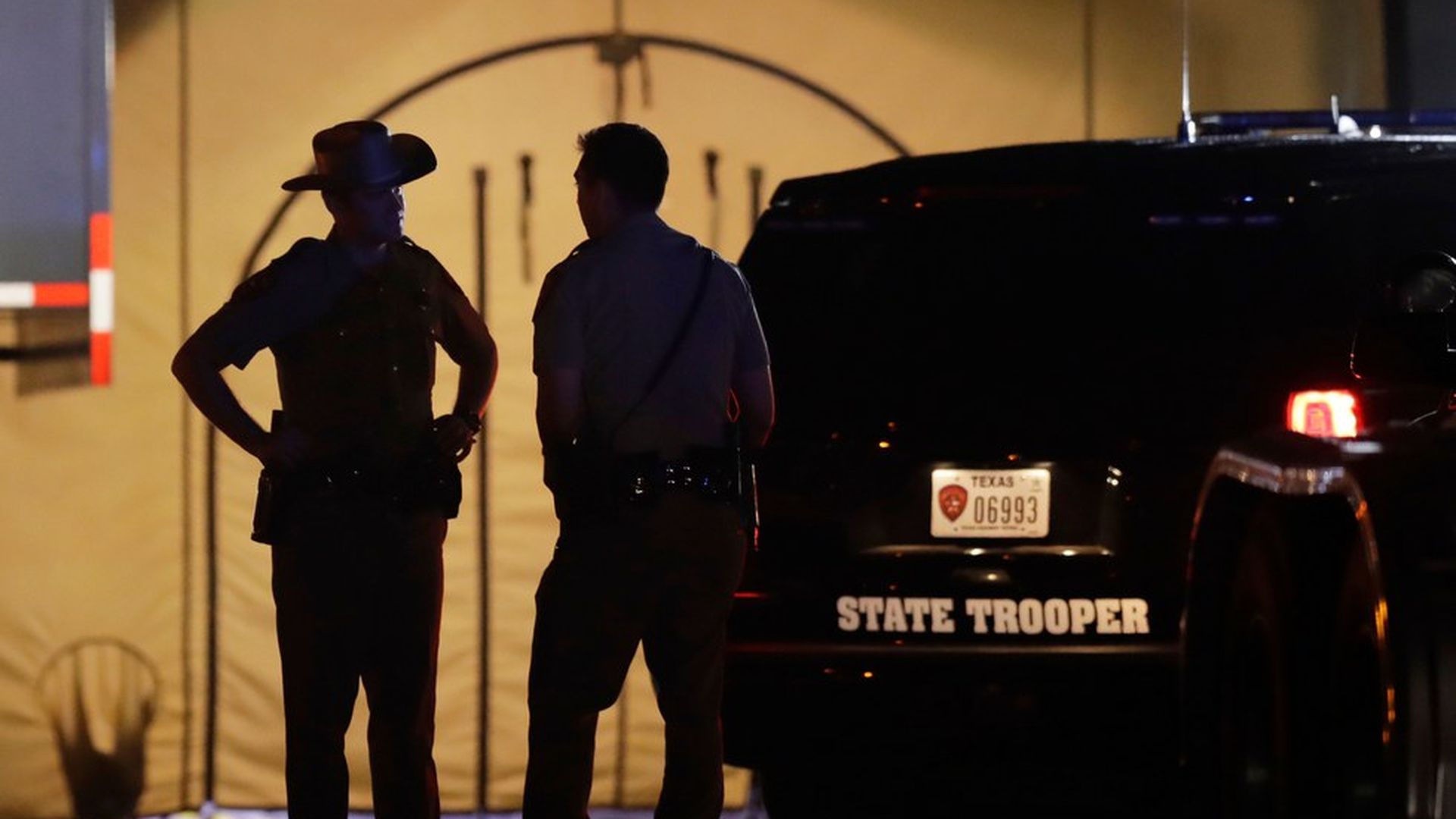Nov 7, 2017
Investigators haven't accessed info on Texas shooter's phone
Add Axios as your preferred source to
see more of our stories on Google.

Law enforcement officials work the scene of the Texas church shooting. Photo: Eric Gay / AP
Add Axios as your preferred source to
see more of our stories on Google.

Law enforcement officials work the scene of the Texas church shooting. Photo: Eric Gay / AP